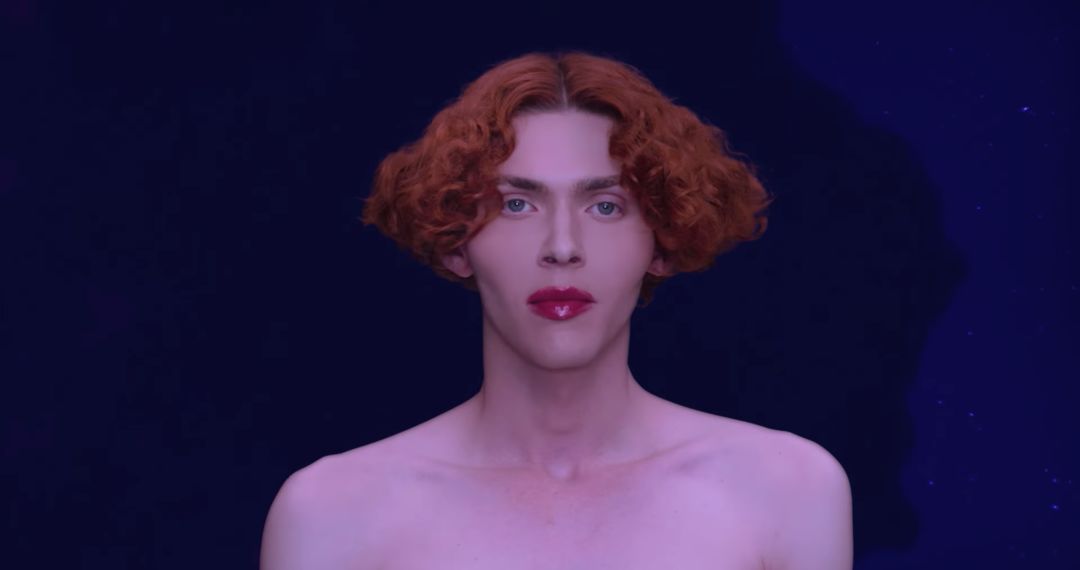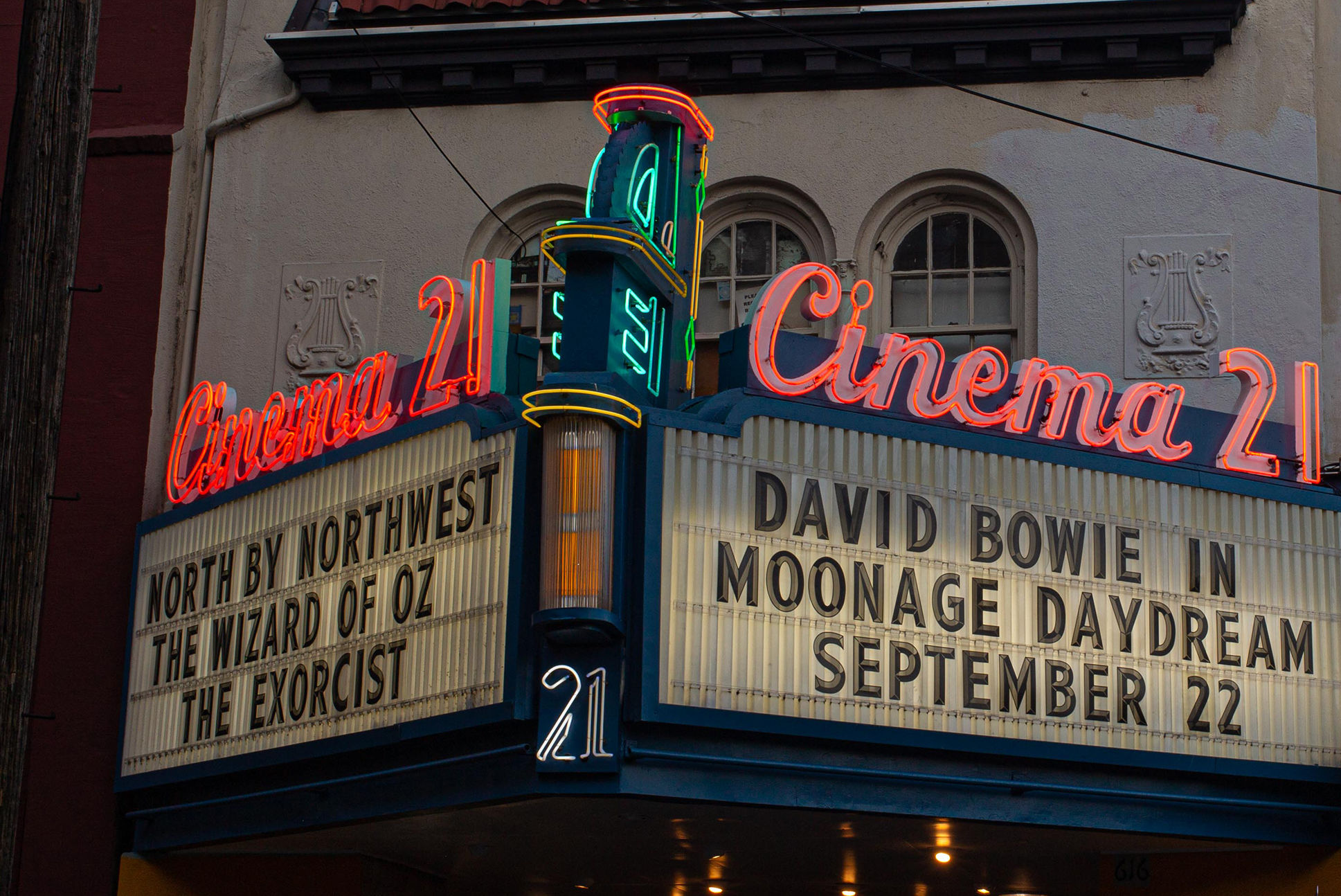Pop Culture Worth Your Time: The Wire, Sophie, and More

Sophie in the video for 2018's "It's Okay to Cry"
February's here, and so, finally, is the consistent rain. It's been a wet week, full of hefty winds and some classic Portland gray—here's what we've been streaming to take refuge.
Imploding the Mirage
Here’s the deal: I was only 5 when "Mr. Brightside" hit big. Still, the Killers were a staple of my high school years. But I’ve grown. I’ve matured. Sure, I may have gone through a metal/punk-rock phase (I may still be going through a metal/punk-rock phase), but the Killers were the foundation, a sturdy influence. So when their new album came out, I had to give it a listen—if only for old time’s sake.
Annnnnd, I’m here to say the Killers are still a wondrously absurd rock band, and Imploding the Mirage hits just as you'd expect: it provides delightful synth-rock tracks like “Caution” and “Blowback" and arena anthems like “My Own Soul’s Warning” and “Dying Breed.” There’s even a ballad with friend-of-Portland k.d. lang, “Lightning Fields.” Add in a few so-so numbers that don’t quite crack into the rock stratosphere, and you have a quintessential Killers album. Their new song on the deluxe album, “C’est La Vie,” is a jittery bop but a bit incongruous from the rest of the collection. Two stripped-down versions of “Caution” and “Blowback” complete the album for some easy listening. And although the title track doesn’t spark much for this rocker, it falls in line with the overall album aesthetic—gritty, a little glamorous, but admittedly kitsch.
Bottom line, Imploding the Mirage has it all—nostalgic time warps, easy listening, a few hidden bops, and just enough brassy moments to make you wonder, “Are the Killers still cool?” before adding them to your guilty pleasure playlist. —Aurora Biggers, editorial intern
Roller Coaster Tycoon
I grew up in a golden age of computer games—Oregon Trail to Sim Town to Math Blaster—but my favorite, without question, was Roller Coaster Tycoon 2. The game finally inspired 10-year-old me to get over my fear of riding roller coasters, got me curious about physics (gotta get those negative vertical G’s!), and sharpened my employee management and business skills (because you have to efficiently manage your handymen in order to keep your footpaths puke-free, all while balancing your park’s budget). I could pour hours into a custom roller coaster design while putting my park into debt and singing along happily to the merry-go-round’s greatest hits.
As operating systems got updated and CD drives became obsolete, there were a few dark years where I could no longer play my beloved RCT2. When an iOS version was released, I spent a few weeks playing it on my commute, holding my tiny phone screen up to my face and straining my eyes while I painstakingly constructed looping roller coasters. When I finally splurged on Roller Coaster Tycoon Classic on Steam a couple years back, it was a sweet, sweet reunion. Wooden roller coasters once again became my creative outlet of choice, and merry-go-round music floated through my computer speakers once more, until daily life and deadlines made the game fade into the background.
Sophie
I woke up to five different messages on Saturday morning, all relaying info that didn't seem possible: 34-year-old avant-garde electronic producer Sophie had died in Athens, after slipping and falling on a climb to better see the full moon.
A million people have written better and more thoughtful pieces than I could about what Sophie meant—about how her transness and queerness so thoroughly informed her brave-new-world approach to electronic music, and how an enormous slice of contemporary pop can be traced almost directly back to her hands. All I could do was plug in my AirPods and get lost in her soundscapes, which truly sound like nothing else in the world. When I first heard "Lemonade," Sophie's metallic calling card (which later got scooped for a McDonald's commercial), it's one of the only times I can remember being sure I was hearing a new sound. I played it on a loop for all of Saturday morning. I listened to Vroom Vroom, the Charli XCX project Sophie produced that unlocked XCX's full pop-renegade potential. I listened to Sophie's only LP, Oil of Every Pearl's Un-Insides, which juxtaposes sticky-sweet melodies, brutal industrial synths, and several-minute software experiments that feel more like sculptures than songs. I even listened to the misguided "Bitch I'm Madonna," which Sophie helped produce for Madge, and located a spark in its center I couldn't quite suss out before.
I got sad. Sad that people can just die, and it doesn't even have to be at the hands of the 8,000 factors we're always keeping our eyes on. Sad that an artist of such vitality can just go away and leave no heir apparent. Sad that Sophie's music sometimes felt like a lone voice in mass culture, insisting things could be better, engaging in acts of genuinely thrilling imagination—and knowing that trans and queer artists consistently have to be those voices. And then we lose them. And who points the way forward then? —Conner Reed, arts & culture editor
The Wire, or just talking about The Wire
On Sunday night, a CNN reporter posted a poll to Twitter: How would The Wire character Frank Sobotka, an officer in the longshoremen’s union at the Port of Baltimore, have voted in the 2016 and 2020 presidential elections? The replies poured in: union through and through, so Clinton-Biden; union but really sexist, so Trump-Biden; a white man who feels so much has been taken from him, so Trump-Trump; a hater of real estate developers who surely shook Amtrak Joe’s hand at a stevedore picnic, so Blank Space-Biden; union but pissed about Bill Clinton’s NAFTA and then pissed about Trump’s tariffs, so Trump-Biden…. Within a few minutes, multiple people had tagged Wire creator David Simon, who soon weighed in to remind readers of Sobotka’s anti-Reagan feelings.
Commenters speculated on the likely votes of other characters—Marlo and Stringer might go Trump, Omar gets way into Bernie, Herc doesn’t vote but definitely storms the Capitol with a Thin Blue Line flag, Ziggy is Yang Gang, Presbo is in a glass case of emotion. Plenty go off-topic and rank the five seasons of the HBO series that premiered almost 20 years ago (right this sec I’m 3-4-1-2-5, but ask me tomorrow and that could change), or confess to welling up a bit when they see Wire actors elsewhere, especially if their characters had a bad end (“Mommy, Black Panther just started. How can you be crying already?”).
In the days since, I’ve checked back in on the thread, eager to sink into this world again. It’s not the topic, exactly, though The Wire, an expansive drama depicting the interconnectedness, shared corruption, and overlapping gray areas of law enforcement, the drug trade, local politics, labor, education, media, and failing social safety nets, is an incredible piece of art and sure to be considered one of the century’s key cultural artifacts. Rather, it’s the conversation—one that, before last March, I could have had with a stranger on the bus or the person sitting on the next barstool. Even just overhearing it (as I essentially did with this Twitter thread, though I did vote in the poll—Trump-Biden, duh) would have been a joyful reminder of the richness of my community, the vast possibilities for connection. I miss the serendipity of such unexpected encounters. Wear your masks, please, so I can someday get into arguments with strangers in person again. And if you haven’t watched The Wire, let it be your next quarantine binge. —Margaret Seiler, managing editor




